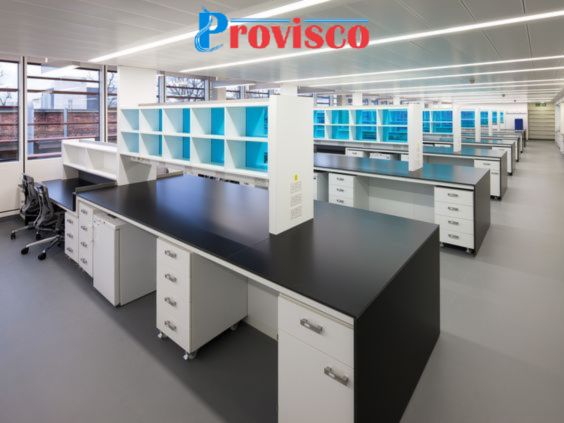Pharmaceutical laboratories are hubs of scientific discovery, where groundbreaking research and development take place. To support these endeavors, the right laboratory furniture is essential. It not only provides a comfortable and efficient workspace for scientists but also ensures compliance with regulatory standards. In this article, we will explore the latest trends in pharmaceutical lab furniture, highlighting how these trends are shaping the future of pharmaceutical research.
Ergonomic Excellence
Designing for Comfort and Productivity
In today’s pharmaceutical labs, the well-being of researchers is a top priority. Ergonomically designed lab furniture ensures that scientists can work comfortably for extended periods, reducing the risk of injuries and enhancing productivity.
Adjustable Furniture for Versatility
Flexibility is key in pharmaceutical research. Adjustable lab furniture allows researchers to adapt their workspace to different tasks and experiments, promoting efficiency and versatility.
Modular Lab Furniture
Adapting to Changing Research Needs
Modular lab furniture offers the flexibility to reconfigure the lab space as research needs evolve. This adaptability is invaluable in a rapidly changing pharmaceutical landscape.
Space Optimization
Pharmaceutical lab space is often limited and expensive. Modular furniture helps optimize space utilization, making the most of available resources.
Technology Integration
Smart Lab Furniture for Data-Driven Research
In the age of big data, smart lab furniture equipped with sensors and data connectivity facilitates real-time monitoring and data collection, streamlining research processes.
Enhanced Connectivity
Pharmaceutical labs are increasingly interconnected. Furniture designed with integrated power and data outlets enables seamless collaboration and communication among researchers.
Compliance and Safety
Meeting Regulatory Standards
Pharmaceutical labs must adhere to strict regulatory standards. Specialized lab furniture designed for handling hazardous materials and maintaining cleanliness is essential for compliance.
Lab Furniture for Hazardous Materials
Handling hazardous materials requires specialized furniture to ensure the safety of researchers and prevent contamination.
Aesthetics and Flexibility
Designing Inspiring Workspaces
A well-designed lab environment can inspire creativity and innovation among researchers. Aesthetically pleasing furniture contributes to a positive work atmosphere.
Customization Options
Pharmaceutical labs have unique requirements. Customizable lab furniture allows labs to tailor their workspace to their specific needs.
Cost-Efficiency
Long-Term Savings through Quality Furniture
Investing in high-quality lab furniture may require an initial outlay, but it pays off in the long run through durability and reduced maintenance costs.
ROI of Lab Furniture Investments
Understanding the return on investment (ROI) of lab furniture is essential for budget planning and resource allocation.
Collaborative Spaces
Facilitating Teamwork in Pharma Labs
Collaboration is a cornerstone of pharmaceutical research. Open-concept lab furniture fosters teamwork and idea-sharing among researchers.
Open-Concept Lab Furniture
Creating open and inviting collaborative spaces within the lab encourages interaction and innovation.
Conclusion
Pharmaceutical lab furniture is not merely functional; it plays a pivotal role in research outcomes. By embracing ergonomic, sustainable, and technologically advanced furniture solutions, pharmaceutical labs can stay at the forefront of innovation.
Related Questions
1. Is customizable lab furniture necessary for pharmaceutical labs?
Customizable lab furniture allows pharmaceutical labs to tailor their workspace to their specific needs and requirements.
2. How can sustainable lab furniture benefit pharmaceutical research?
Sustainable lab furniture reduces environmental impact, promotes a healthier work environment, and aligns with global sustainability goals.
3. What role does technology play in modern lab furniture design?
Technology integration in lab furniture enables real-time data collection, connectivity, and streamlined research processes.


